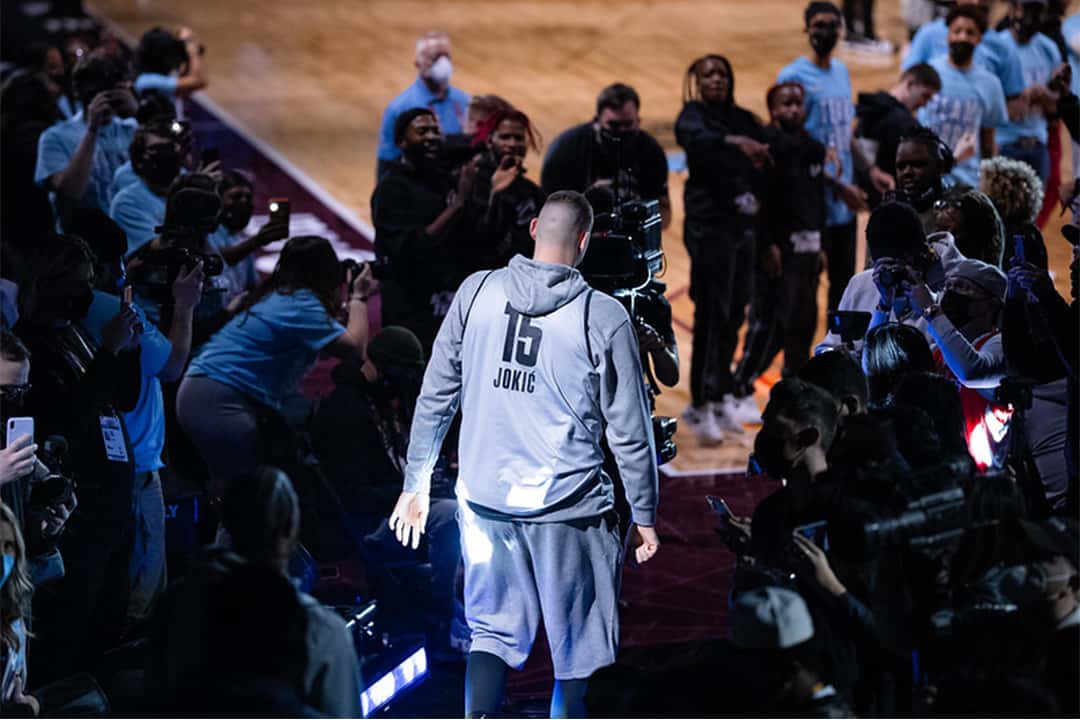While basketball has always existed outside of America, the NBA has always largely been dominated by American players. But now, international players — those who were not born in America — are starting to dominate the league.
The best piece of evidence: the fact that an American player has not won the Most Valuable Player (MVP) award, the league’s most prestigious individual award, since 2018. The ‘Greek Freak,’ Giannis Antetokounmpo, won MVP in 2019 and 2020, and Serbian center, Nikola Jokić, won the title in 2021 and 2022.
Hakeem Olajuwon became the first international player to win the award in 1994. Canada’s very own Steve Nash was next, winning in 2005 and 2006. In 2007, Dirk Nowitzki became the first European to win the award and was the last international player to do so until Antetokounmpo in 2019. Given the gap between each international winner, it’s easy to assume that the current streak is destined to end soon.
However, it seems impossible to argue that international players won’t continue to dominate the league. All three finalists for the MVP award this year — Nikola Jokić, Giannis Antetokounmpo, and Joel Embiid — were international players. Furthermore, Slovenian Luka Dončić, one of the league’s brightest young talents, finished fifth in MVP voting this season.
When the NBA was founded in 1949, there were only five international players on opening-night rosters. Now, for the eighth straight season, opening-night rosters in the 2021–22 season featured at least 100 international players.
Canadians have overwhelmingly made up the largest group of international players in the league — this season broke the record with 18 Canadian players. However, Canadians haven’t always succeeded in the NBA. This season, Andrew Wiggins was only the third Canadian to become an NBA All-Star, after Nash and Jamaal Magloire.
It is typically a risky move for a team to use their draft picks on international players. Between 2002 and 2011, Yao Ming was the only international draft pick selected for an All-Star game. However, each story is different. Some players do adapt quickly to the NBA’s style of play, like Dončić, while others, like Jokić, may take time to adapt.
One thing is clear: players are becoming increasingly capable of adapting quickly. The Raptors’ president and vice-chairman, Masai Ujiri, explained the reason behind this phenomenon, saying, “one of the main factors is social media… [as] everybody… [has access to] videos, they have all those things. You see kids that know so much about the game.”
While the risk of being unable to adapt to the NBA is still there, international players do provide a certain value. Specifically, European players develop their skill in an environment that inspires teamwork and emphasizes passing, shooting, and finesse. As a result, teams are scouting across the world to accrue the benefits of having international players with unique skill sets or unnoticed talent on the team.
The NBA itself is helping to stimulate this growth. In 2001, the NBA and the International Basketball Federation joined forces to create Basketball Without Borders (BWB), a program intended to develop basketball interest and infrastructure outside of America. BWB has helped develop current NBA stars, including MVP runner up Joel Embiid, and others like Deandre Ayton, Rui Hachimura, and Pascal Siakam.
As Ujiri also noted, the growth of international talent has helped the league become more competitive.
“If you don’t [improve], there’s another person who will take it from you. [Do] you think you’re doing shit in Brazil? There’s another person in Europe doing the same thing,” he explained. “The more competition there is, people work even harder.”
The game’s growth across the globe has attracted fans and players, growing the NBA’s brand and influencing the ways that the game is being played in America.
Speaking about his role in the league as an international player, Antetokounmpo said, “It’s because of guys like Dirk Nowitzki, Pau Gasol, Tony Parker, Manu Ginobili, and those guys. Even older [players like] Dražen Petrović. They set the path for us [international players].”
Global representation matters, so seeing international players, like Antetokounmpo, inspires people from all corners of the world to pursue their basketball dreams — the opportunity for success is there, no matter where you’re from.


